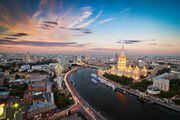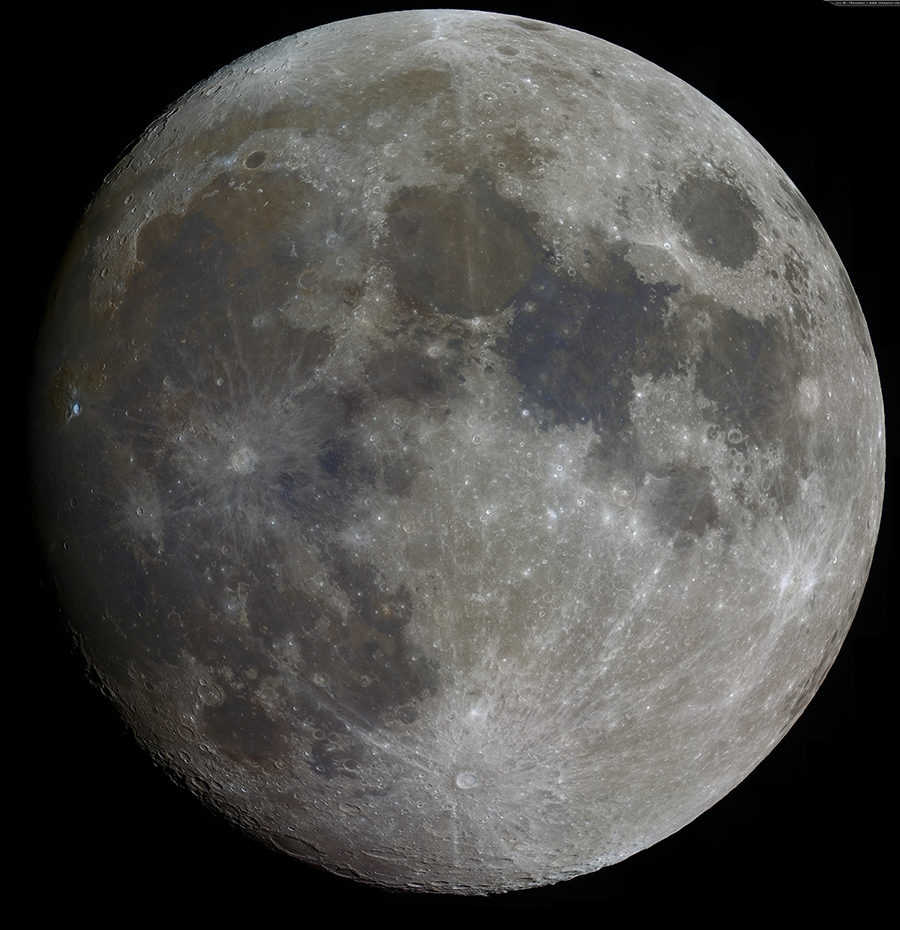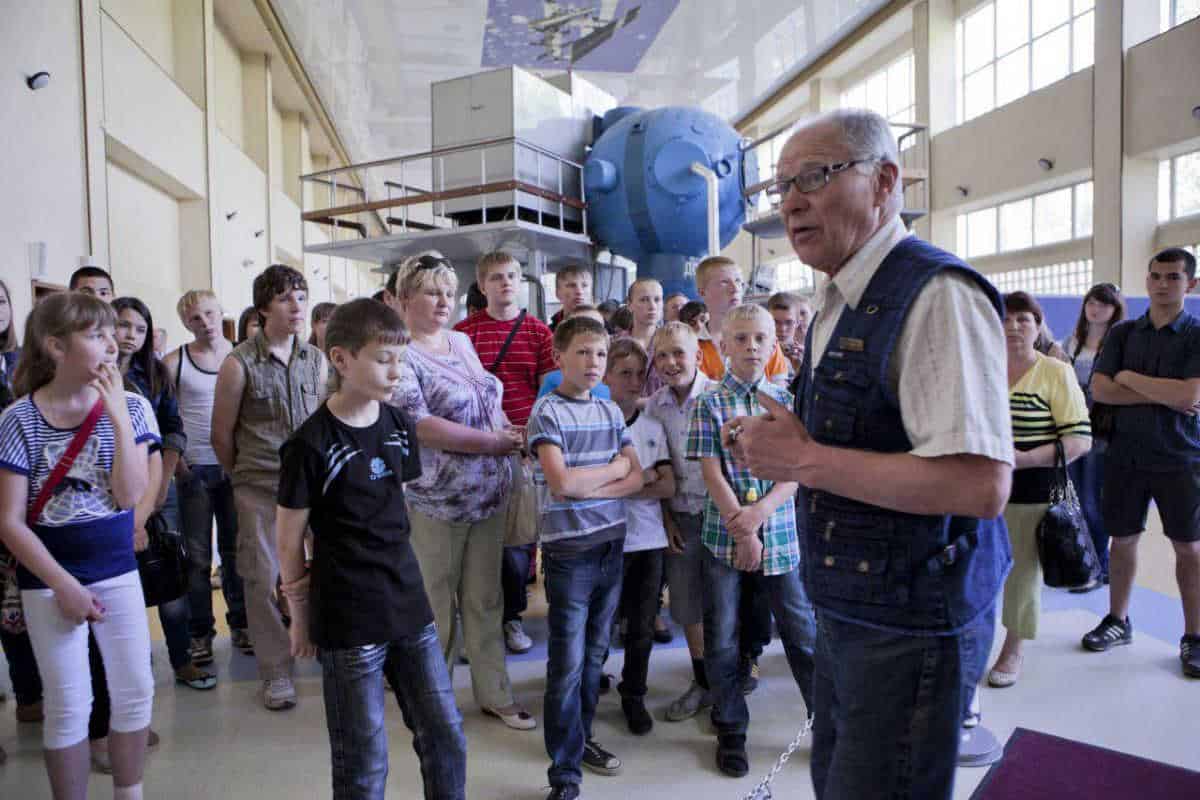We are excited to share with you the details of our project, including its idea, mission, and plans. In this article, we will also discuss the various sections and headings that make up our project.
Astrophotography masterpieces
Discover the most breathtaking astronomical photos capturing the beauty of objects within our Solar system and the vastness of deep space.
Latest astronomy news
Stay updated with the most recent scientific discoveries and news about the Universe, straight from the experts.
Observer’s Advice
Insider Tips from Experts in Astronomical Observation
This Month’s Celestial Display
Astronomical Events and Star Charts for the Current Month
Which Bright Star Can be Seen in the Western Evening Sky?

The arrival of spring in our region has brought more frequent periods of favorable weather conditions and once again sparked curiosity – what exactly is that luminous object shining so brilliantly in the western sky? Could it possibly be an unidentified flying object?
The answer to this inquiry is that it is actually Venus – the second planet in our solar system, situated just after the Sun. It is the third most radiant celestial body after the Sun and the Moon. Its visibility is quite prominent even through light cloud cover, which gives it a resemblance to a man-made object. If the clouds are moving swiftly, the “star” may even appear as if it is in flight.
Venus is currently shining with a sidereal magnitude of -4.6m, making it almost 20 times brighter than Sirius, the most luminous star in the night sky. Interestingly, Sirius is also visible in the evening sky, situated low in the southwest, specifically “to the left and below”. It is worth noting that while Sirius twinkles like other stars, Venus emits a constant, steady light, which is a characteristic feature of planets.
If you observe Venus through a small telescope or large binoculars, you will be able to observe its phase, which currently resembles that of a crescent moon.
Other updates from the section
Venus spotted in the Pleiades. It’s an unmissable event!
Ilya Proskuryakov stands out as a rare case of a hockey player who returned to the KHL after a mandatory trip to Europe. The goaltender spent the 2018/19 season with Krefeld in Germany before moving on to various teams, including Lada in the VHL, and eventually joining Traktor. Last year, this experienced goalie kickstarted his career by becoming the number one in Chelyabinsk and even made it to the KHL All-Star Game.
In the offseason, Proskuryakov and “Traktor” went their separate ways, and he signed a two-way contract with Avangard. In an insightful interview with SE, Ilya explained his decision to join the Omsk club, reminisced about his accomplishments in the 2022/23 season, his time in Germany, and revealed why he’s not a fan of shootouts.
– What is your motivation for continuing your career?
– I enjoy playing hockey. Thankfully, I still have the strength and drive to continue my sports career.
– What led you to choose Avangard?
– I received a call from the club and expressed my interest. I didn’t hesitate for long. “Avangard” is a top club with the best hockey playing conditions.
– What are your expectations from the contract? Do you understand the role that awaits you?
– I understand my role and I want to contribute to the club’s success in achieving the set goals. It’s clear that I am an older player in terms of sports. I was brought in to help the team, share my experience, and knowledge.
– Will you serve as a mentor for the guys?
– Then it would be artificial. You need to demonstrate through your example and attitude. That will suffice.
– Were you concerned about not being able to find a job during the summer?
– Not particularly. Of course, I wanted to have more playing time and find a job as soon as possible to start preparing. In my situation, it worked out that way – I remained calm.
– Is it challenging to train when there is uncertainty about the future?
– When you enjoy training, it is not challenging. The key is to stay motivated. Ideally, you would like to sign a contract sooner, but it is what it is.
– Is it unpleasant when hockey players are already referred to as veterans after the age of 32-33?
– Everyone has the right to have their own perspective. In the past, even at the age of 25, people would end their sports careers. I am at ease when someone calls me a veteran.
– Throughout your career, you have experienced numerous club changes. Are you now at peace with these transitions?
– I have long since become accustomed to it. I have learned to adapt to new cities and the constant movement. The most challenging was my initial trip to Moscow after being traded from Metallurg. While I am an advocate for staying with one club, careers often take unexpected paths. Upon moving to Moscow, I had to acclimate to a whole new way of life.
– Did the trade to CSKA come as a shock?
– It wasn’t necessarily a shock. At the time, I had no desire to move anywhere. I was quite young and felt hurt and disappointed by the trade. However, over time, I came to realize that it was ultimately for the best. The trade helped me to grow and mature, both in terms of my athletic abilities and my personal life.
– What was it like growing up? You went from the modest city of Magnitogorsk to the bustling metropolis of Moscow.
– Were you able to overcome the challenges of relocating efficiently?
– I managed to do so relatively quickly. I became aware of the club I was representing. During that period, CSKA was facing financial difficulties, including salary delays. I also understood the conditions outside of Magnitogorsk. Gradually, I acclimated, regained my composure, and grounded myself. In that regard, I am appreciative of Metallurg for the opportunity.
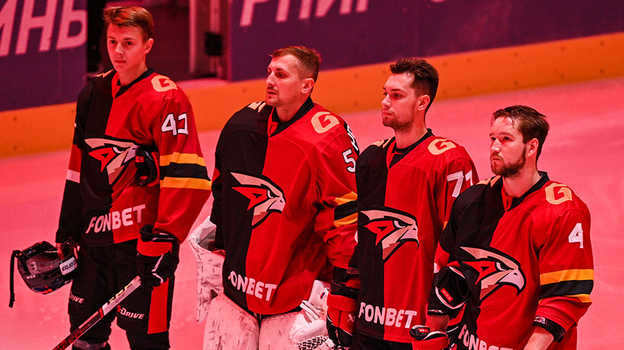
Hockey in Germany
– When you moved to play hockey in Germany in 2018, did it feel like moving to another country?
– No, it’s actually quite different. The main challenge was the language barrier in Germany. However, I was pleasantly surprised by the club’s attitude. They were extremely helpful and quick to solve any problems that arose. They even assisted with finding an apartment and a car. All I had to focus on was playing hockey.
– How did you manage the language barrier? Did you have an interpreter?
– I had the support of both a translator and my teammates. Kirill Kabanov and Dima Petzold, who immigrated at a young age and have played in Germany for a long time, including in the NHL, were on the team. They helped me with everyday challenges.
– In terms of finances, Krefeld was a relatively modest club. They had a small office, but any issues that arose were resolved promptly and in an organized manner. The staff had a close relationship with the team, and I never felt like an outsider.
– What are your thoughts on hockey in the German championship?
– Germany has a high overall level of hockey players. However, they lack the presence of creative players like Kaprizov, Mozyakin, Mikhailis, Radulov, Tkachev. Despite this, the league maintains a good level due to the solid play of average hockey players.
– Have you considered any options in Europe for this summer? For example, Stanislav Galimov went to Slovakia.
– I took into account all possibilities. Simultaneously, I acknowledged that currently it is challenging to secure a position in the premier European leagues, primarily due to the political circumstances. In Slovakia, certain clubs that receive state funding have a policy of not signing Russian hockey players.
– Germany is renowned for its beer culture. Was the frothy beverage utilized for recuperation purposes?
– There is a unique set of customs. It has never been celebrated before, but it is observed regularly. In our team, there was a long-standing tradition known as the “Kabin-party”. The management would bring in beer and organize a lavish feast complete with meat and appetizers. The guys would retreat to the locker room, indulging in beer, watching soccer matches, and even playing tennis. I had the pleasure of attending one of these gatherings. It was an official event sanctioned by the management, akin to a cherished tradition. Just like the annual Super Bowl, we were officially permitted to gather and enjoy the festivities. Everyone would bring their favorite snacks, meat, and beer, and we would spend the night engrossed in American football.
– Can you recall any other captivating events?
– In Cologne, situated on the banks of the Rhine River, we engaged in a match against Krefeld. Following the game, we gathered with the enthusiastic fans aboard a grand vessel and embarked on a joint voyage that lasted an impressive four and a half hours until we reached Krefeld. Throughout the entire duration of the journey, the players partook in the consumption of beer alongside the fans, engaging in casual conversations and answering questions. We had previously organized a similar event, but this time it took place on a train. We embarked on a 4-5 hour journey from Mannheim to Krefeld, conversing with fans exclusively within the confines of the dining car.
– What kind of inquiries do German hockey fans pose to the players?
– There isn’t a specific subject matter that German fans inquire about. The nature of their questions is contingent upon the amount of alcohol they have consumed. At times, they pose audacious statements rather than inquiries. The players attentively listen to their opinions. Given the substantial number of Russians residing in Germany, it is not uncommon for the fans to speak in Russian on occasion.
– Can you recall the most audacious question you have been asked?
– I cannot recall the specific question, but I distinctly remember the man himself. He was a fan who completely overwhelmed us. I was left speechless. I can vividly picture his appearance, but the exact question he asked me – no.
– Do the local hockey players approve of this?
– It’s a unique aspect of the German league. It’s the way they do things there. In addition to traveling with fans, the players were greeted by fans in the locker room after the games. Two or three hockey players were invited to have a conversation. You learn a lot of new things about yourself.
– Can you envision such a scenario happening in Russia?
– Why not? The train system in Russia is well-developed. Take, for example, the route from Omsk to Novosibirsk. Anything can be arranged if there is interest. The important factor is the cost. In Germany, the fans have to pay for their tickets, which include drinks.
– Do the hockey players have to stay sober?
– No, why would they? Beer can be poured freely without any restrictions or limitations. If you don’t want to drink, you don’t have to. If you want to, feel free to pour yourself a drink.
– This approach may not be appreciated by many coaches in Russia.
– In the KHL, the schedule is more demanding. Games are played almost every day and the flights are longer. In Germany, there are only two or three matches per week. That’s why it’s easier to organize such events there.
– Were you anticipating such a successful season for Tractor? Being invited to the All-Star Game and playing numerous games.
– My dear friend and Chelyabinsk physician, Valeri Vasilyevich Mikhailov, always used to say: “Life is full of surprises”. Honestly, I didn’t expect things to progress so rapidly. It caught me off guard. However, I was prepared for it. I’m just grateful and elated that everything turned out this way.
– Goalkeepers often experience a sense of exhilaration. Did you feel it?
– Thankfully, I felt fantastic throughout the season. I sailed through the preseason without any hiccups. No injuries, no complications. I smoothly transitioned into the championship and everything went smoothly from there. I’m extremely pleased to have made it to the All-Star Game.
– Georgy Gelashvili took charge of the goaltending department at Tractor. How does it feel to collaborate with a coach with whom you once played together at Metalurh?
– I was curious to see what kind of coach he would be. I have known him for a long time as a player and a teammate, and I have always respected him for his personal qualities. So it was intriguing to work together.
– Is Georgiy as passionate at work as he used to be on the ice?
– I haven’t noticed it with us. A coach needs to ensure that it doesn’t affect the players. Everyone may interpret such things differently. I haven’t observed anything of that sort.
– There is a belief that experienced goalkeepers only require a coach for psychological preparation before games. You can’t improve their technique. Do you still find a goalkeepers coach necessary?
– Can technique be improved at the age of 39?
– It is definitely possible. The key is to have the desire. It’s never too late to learn and make improvements.
– What aspects of your game do you want to work on?
– I would like to work on not conceding any goals at all.
– Yes, that’s why we practice and refine our game every day. However, there are still moments when we do concede.
– Hockey without goals becomes boring.
– Boring for whom? Only for the forwards. But analysts and goalies would find it interesting to watch games without goals.
– Every goalie I have spoken to has been impressed by your effectiveness. Have you always been a hard worker?
– No, certainly not. I am just an average individual who has also experienced various stages in life. The same transitional phase, you know? When you’re a teenager, you tend to feel like you’re invincible and that you have all the knowledge and skills in the world. But in reality, that’s not the case. It takes time and hard work to realize that having a professional mindset allows you to perform at a high level for a longer period of time and remain in demand.
– What were the moments that caused you to change your perspective?
– It’s more about life circumstances rather than just hockey.
– No, a person’s private life is personal enough to be kept to oneself.
– What’s the secret to your remarkable athletic longevity? You don’t look like you’re 36 years old.
– How would I know? I’m not Alexander Eremenko or Vasya Koshechkin. There have been many players who have had longer careers than me. It’s too early to talk about longevity.
– Are you conscious about your diet?
– I don’t pay much attention to nutrition. I try to eat in moderation and avoid unnecessary food. I only allow myself to eat when I genuinely want to, to calm myself down.
– In the past, you mentioned that you used to bring Vasily Shukshin’s works on your trips. Do you still have a love for literature?
– Reading is generally challenging for me. Sometimes I do it out of necessity. Nowadays, I am trying to read more spiritual literature.
– Life circumstances have led to this change.
– What do you mean by “spiritual literature”? The Bible?
– The Gospel is a book that I read daily. There is a wealth of spiritual literature available, including the works of the Holy Fathers and books by monks. Recently, due to recent events, I have started reading “War and the Bible” by Nikolai Serbsky.
– How does it benefit you?
– It’s not just about the benefits. Reading expands your horizons. It changes your perspective on certain things, opens your eyes to new ideas, and allows you to see things in a different light. It’s hard to fully articulate the impact while sitting in a chair. We all have our own weaknesses, mistakes, and internal struggles.
– Many people don’t even consider this. Yet here you are, at this level.
– I’m not sure if I’ve fully reached this level. I can only put it into words. I understand it in my mind, but I don’t always act upon it physically. Not always.
– But you’re still playing in the KHL. So you are living it.
Bullitts, the iconic aim for Ak Bars.
– Are you considered an expert in penalty shots?
– I’m not a fan of shootouts at all. We practice them and we have to utilize the knowledge and advice of the coaches, particularly Yuri Shundrov. It yields results, but I believe that the outcome of the match should be decided during the game. If we can’t score in the 3×3 format, then let’s play 2×2. That way, everything is settled within the game, not through shots. One side of the ice can have one quality, while the other side can have another. Those nuances make a significant difference.
– Is saving a shootout more about reading the moment?
– There are numerous factors to consider. The goalie has to read the moment and gauge the distance. The players are also observing us. A skilled forward can easily anticipate the goalie’s moves.
– Who are the players that have caused significant difficulties in shootouts?
– There are a few notable players. Take Zhenka Kuznetsov, for example. As he has gotten older, he has only become more skilled in this aspect. Even when we were on the same team, it was incredibly challenging to stop his shootouts. Now, it’s nearly impossible. Even Gretzky himself complains that something needs to be done about this kind of execution. Another player to mention is Sergei Mozyakin. He handles the puck with such finesse that you never know where he’s going to put it. From any position, he can direct the puck anywhere he wants. He might even look you in the eye or glance at the stands, but it won’t affect his accuracy.
– Do you keep track of your shootout statistics?
– I used to, but not anymore. I understand that it’s important, but it’s not my main focus.
– How often do people remind you about your goal against Ak Bars across the court?
– They inquire about it occasionally. It was such a long time ago that both Nikolayev and Konovalov scored after me. Now there is more focus on them. If I manage to score the second goal, we will have a conversation.
– Did you have opportunities to score last season?
– Did you attempt to shoot across the court more often after the Ak Bars goal?
– No. At that time, I felt that once I had scored, I could move on. Although we didn’t even practice that moment back then.
– How did Valeri Belousov, who coached Metallurg, react to the goal?
– He reacted calmly. Three days later, we played in the Champions League final. It wasn’t about my goal. All the guys congratulated me, and then we focused on preparing for the final, but unfortunately, we lost.
– Did you keep a stick or a puck from that game?
– No, I don’t have anything other than my jerseys. Some individuals collect helmets, but I used the same helmet for multiple seasons, repainting it every summer. Pucks tend to get misplaced during moves. Mikey is my most recent helmet. It stays on my shoulders and never goes anywhere. I have jerseys from all the teams I’ve played for.
– It was mentioned that Belousov never raised his voice at the team. Is that true?
– Yes, that is accurate. He is a very reserved, well-mannered, and highly intelligent coach. However, he is also very demanding. Many people mistake his kindness for weakness, but that is not the case.
– Did this ever backfire on anyone?
– How did Belousov treat goalies? Were they considered a separate realm?
– It was more like a positive response. I didn’t have to engage in extensive conversations with him. I’m aware that he reached out to players for discussions. He treated me kindly, although our conversation was brief.
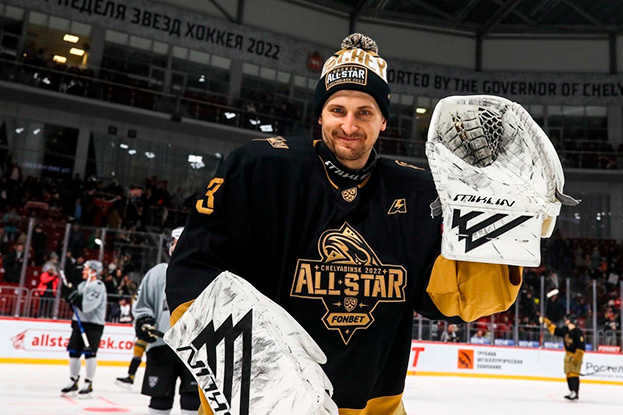
Champions League
– How did you react to the loss in the Champions League final?
– Everyone was extremely disappointed. In Magnitogorsk, we managed to turn the game around from 0:2. However, the opponent proved to be stronger. We went into the away game with hope, but unfortunately, things didn’t go our way. The day before, we defeated Ak Bars, but in the final, it felt like the opponent completely outplayed us and didn’t give us any chances.
– What were your thoughts about participating in the Champions League at that time?
– It was an amazing tournament! A whole new atmosphere, an unconventional international competition. Everything felt different. I have very fond memories of those matches.
– Would it still be interesting to you now, if not for the political aspects?
– I believe so. I would love to compete against teams from Switzerland, Germany, and Finland. It is widely known that three or four German clubs would easily be able to compete in the KHL. The same can be said about Switzerland. Many of the top foreign players from the KHL choose to play in the Swiss league. Players from North America also tend to go to Switzerland.
– You haven’t had much playing time in the playoffs. Can you consider the European Cup as one of the most important moments in your career?
– Absolutely. If Belousov had trusted me at Metalurg, I would have felt confident and performed at a high level in the European Cup. This was also the case last year. When you get to play a lot, you feel more comfortable on the ice. You don’t overthink things and everything comes naturally. And if the team’s system is suitable for the goalie, it’s fantastic. Every goalie enjoys playing a lot, but it doesn’t always happen.
– It is more challenging for a goalkeeper to leave a lasting impression on the fans compared to field players. Are you pleased that your goal against Ak Bars has made history?
– Yes. At least I am remembered for something. But I am not overly excited about it. What, should I brag that I scored a goal in 2009? They will ask me: when was it? What year? Yes, it is an accomplishment. Go to Wikipedia, read about it, and find out who scored it. But in hockey, as a goalie, scoring a goal is not the top priority. It is much more valuable to become the best goalie of the season.
– Have you ever considered what you will do after your career?
– Of course. Various thoughts, many interesting things. However, as long as I am still in the sport, it is pointless to discuss it.
– Are you interested in coaching?
– I don’t dismiss the possibility. I possess the necessary education, knowledge, and experience. Why not?
– Currently, you are only coaching children.
– They already have their own coaches. It would not be appropriate to enter someone else’s domain with your own set of rules. I can only offer advice or recommendations.
– How did it come about that your older son became a striker while the younger one became a goalkeeper?
– It was their choice. At one point, the older son expressed an interest in becoming a goalkeeper. I told him that if he wanted to pursue it, he should do so with dedication. Eventually, he decided to stick with playing in the field.
Looking for ideas on how to make the most of your weekend in Moscow when it’s a scorching +30°C outside? Don’t worry, we’ve got you covered with 20 unique events that are sure to keep you entertained. From mind-bending illusion shows to a concert with a breathtaking view on the observation deck, from fun cooking classes for kids to a delightful getaway at one of Moscow’s most stunning museum-reserves, there’s something for everyone.
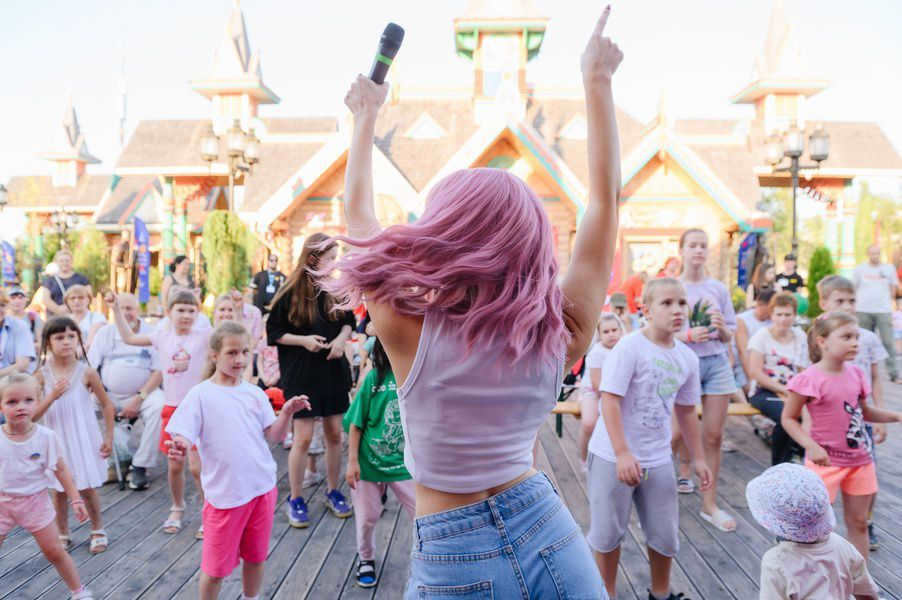
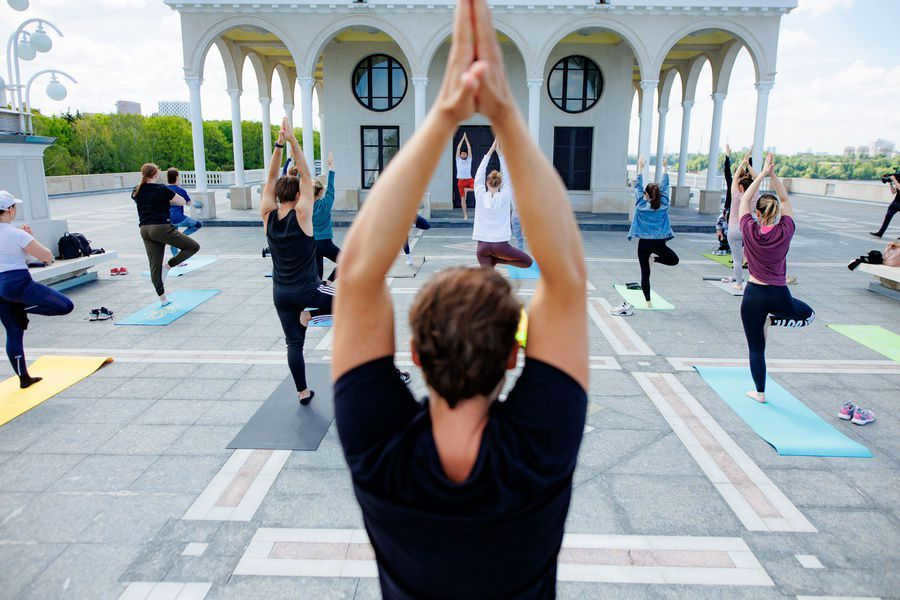
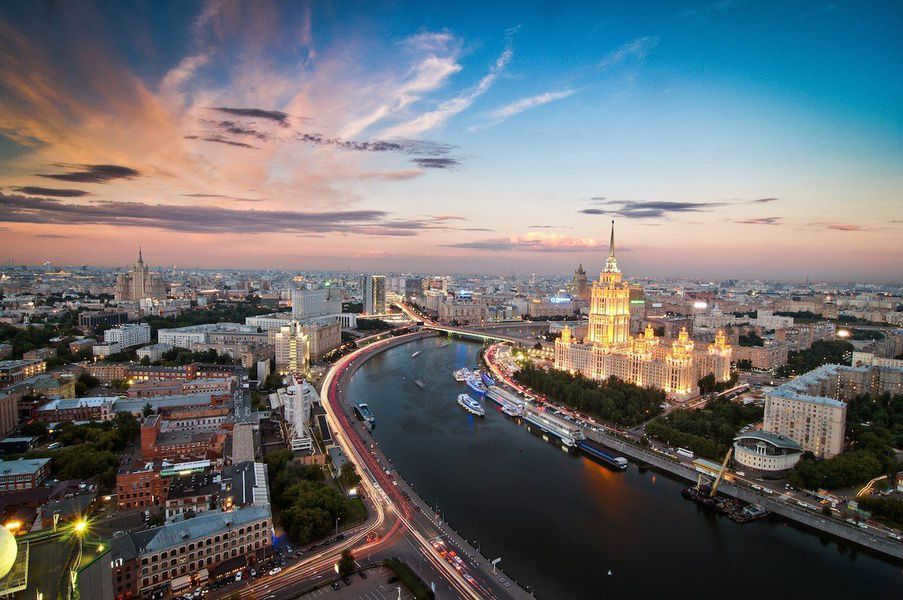
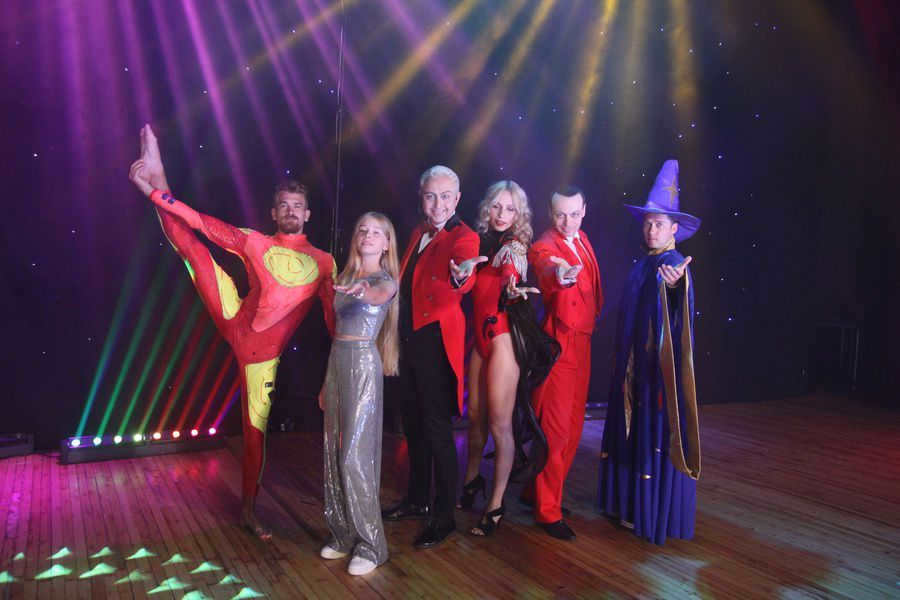
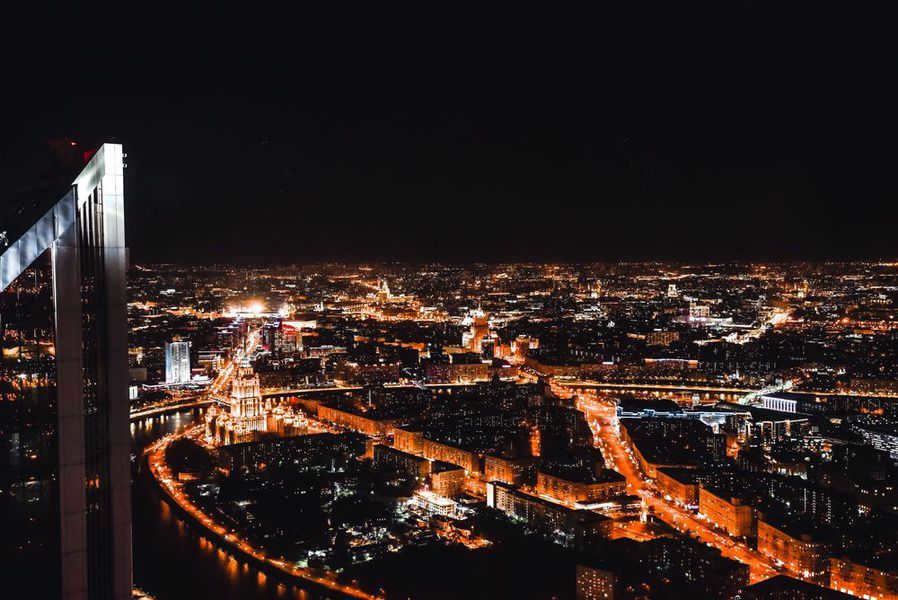

Experience the enchanting sounds of jazz, medieval, and classical music performed on the majestic organ. Discover a world of musical beauty and immerse yourself in the rich melodies that will transport you to another time and place. This extraordinary event is brought to you by the talented IP Romanenko Oleg Ivanovich, a renowned organist who will captivate your senses with his incredible talent.
Embark on a Journey of Love
- Indulge in the most extraordinary and unforgettable dates in Moscow
- Experience the thrill of Speed Dating, the #1 dating event in Moscow
- Join the biggest Speed Dating party in town
- Unleash your competitive spirit at the Board Games Night hosted by FastLife
- Immerse yourself in the unique experience of GOKON Japanese Dating
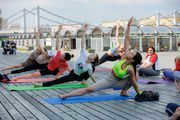
18+ Sports Weekend Project
The project “Sports Weekends” offers free trainings, the latest trends, professional trainers, and celebrity trainers, as well as unique city locations. Whether you prefer online or offline workouts, you can enjoy sports for free in a convenient format.
This is an advertisement for the Autonomous Nonprofit Organization “Moscow Sport” with the INN number 9729297652.
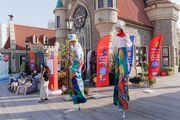
Non-Sleeping Neighborhood Festival 0+
Moscow is set to host the inaugural Non-Sleeping Neighborhood Festival – a free event featuring a diverse range of activities suitable for the whole family. Attendees can look forward to browsing local brand fairs, participating in masterclasses, going on guided tours, enjoying live performances by artists, taking part in sports training sessions, and much more.
